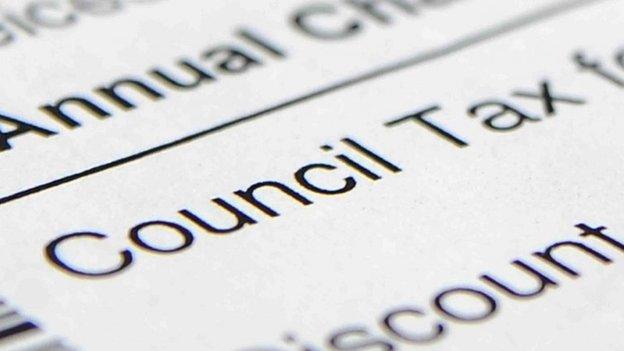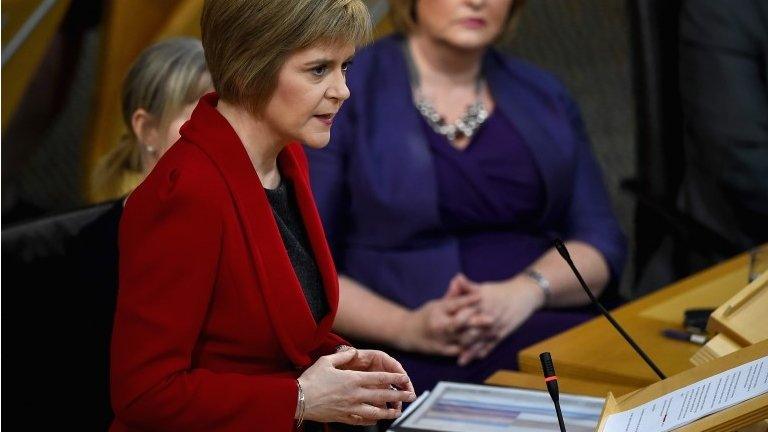How could the SNP replace council tax?
- Published

Scottish First Minister Nicola Sturgeon has announced a commission to look at alternatives to the council tax.
Here, BBC Scotland's local government correspondent Jamie McIvor assesses some of the options.
Replacing the council tax has long been an SNP ambition but it has proved easier said than done.
In 2007, the party advocated replacing it with a "local income tax". In practice, this would have used Holyrood's power to raise income tax by 3p to help replace the money raised by council tax.
The parliament backed the idea of a local income tax but it proved impossible for the minority SNP administration to win enough support for its actual proposal.
Instead came the council tax freeze which survives to the present day and which the government expects to continue until 2017.
The council tax was introduced in 1993 and replaced the hugely controversial community charge, which was more popularly known as the poll tax.
Despite its name the council tax does not pay for councils, providing roughly a fifth of their budget.
The council tax is more of a property tax - like the old domestic rates - than a personal tax.
The charge is levied on the household - not the individual - although people living alone get a discount. The size of the bill depends on the broad size and value of the property and takes no direct account of household income except where discounts or benefit are applicable.
There are several potential ways to reform or replace the council tax, each with their own advantages and disadvantages:
Local income tax set by Holyrood
Simply raising income tax by 3p in line with Holyrood's current powers would not raise enough to replace the council tax. But extra powers are on the way in 2016 which could provide more flexibility and the Smith Commission on extending devolution is expected to recommend a substantial enhancement to Holyrood's tax powers. The downside of a uniform "local" income tax rate across Scotland is that there would be no element of local accountability: people would pay the same regardless of how well their local council was run or how good its services were. Critics would also argue that it continued the long-term trend of centralisation within Scotland and the process by which councils have lost control over their income.
Local income tax set by councils
This option retains the element of local accountability but could prove a logistical nightmare. 32 different rates of income tax across Scotland would beg practical questions. Would an employee's income tax rate depend on where they worked or where they lived? For instance, if it depended on their home address, large employers in Glasgow could find they had staff paying around a dozen different rates of income tax.
Reforming (and perhaps renaming) the council tax
This might mean introducing a wider range of bands and allowing councils to put up the charges in individual bands, perhaps the higher ones, at different rates. At the moment, council tax increases have to be levied across all bands.
Another option might be to consider replacing the council tax as part of a fundamental shake-up of council finance which could give local authorities a suite of financial powers.
A typical council currently gets about 80p of every pound it spends from the government.
A recent commission on strengthening local democracy, established by council body Cosla, recommended that councils should gain far greater control over their finances and raise a far greater proportion of their budgets.
Potential options here might include returning control of business rates to councils: they could vary from area to area and the money would go straight to each council.
Another thought was that councils could take responsibility for the property transaction charge which is replacing stamp duty.
However some in the business community would be likely to fight any moves which led to bigger bills or bureaucracy.
Another possible option, supported by the Scottish Greens, is a land value tax.
The amount paid would depend on the value of land - and land alone - which the bill payer owns. No account is taken of capital improvements such as buildings, drainage or fixtures of any kind.
- Published26 November 2014
